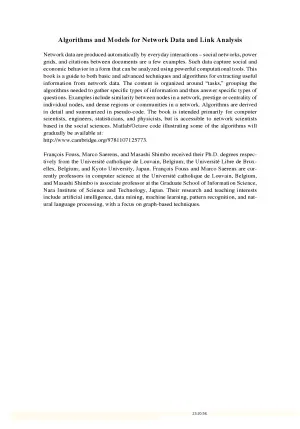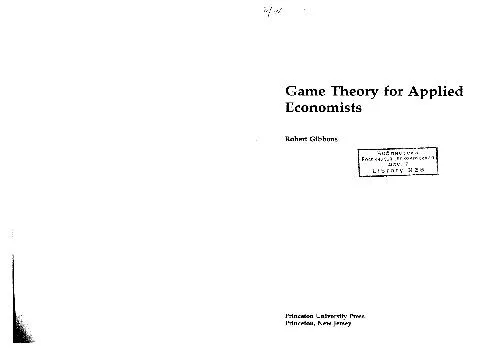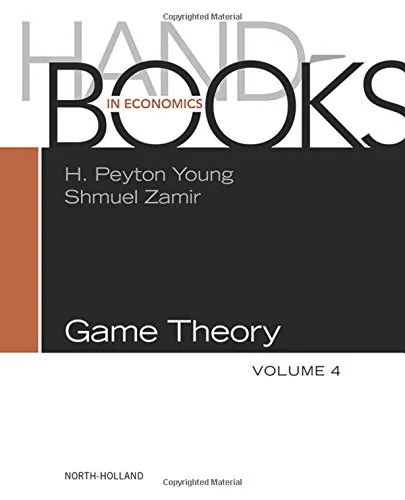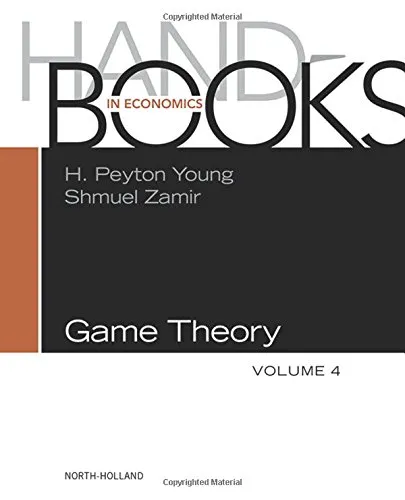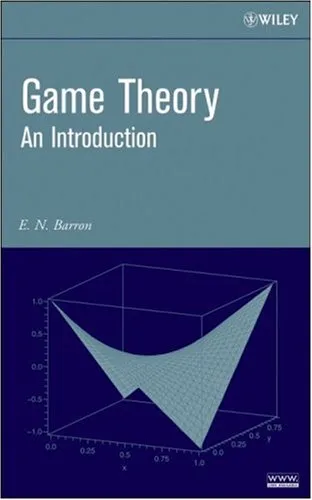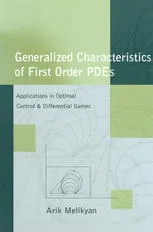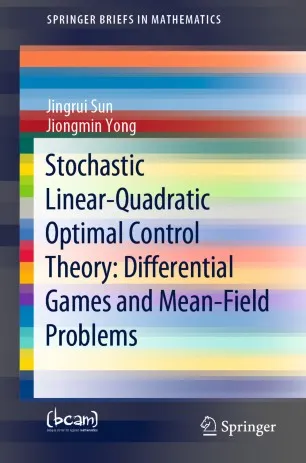Advances in dynamic games: Applications to economics, finance, optimization
4.0
Reviews from our users

You Can Ask your questions from this book's AI after Login
Each download or ask from book AI costs 2 points. To earn more free points, please visit the Points Guide Page and complete some valuable actions.Related Refrences:
Introduction to "Advances in Dynamic Games: Applications to Economics, Finance, and Optimization"
Dynamic games play an essential role in understanding complex decision-making processes in various domains, such as economics, finance, optimization, and more. The book, "Advances in Dynamic Games: Applications to Economics, Finance, and Optimization", delves into the mathematical foundations, theoretical advancements, and applications of dynamic game theory to real-world problems.
This volume brings together a collection of cutting-edge research, contributed by leading experts in the field, that emphasizes both theoretical advancements and practical applications. By focusing on dynamic interactions over time, the book examines how different players with conflicting interests can achieve a balance, known as equilibrium, while maximizing their own outcomes.
Aimed at researchers, professionals, and graduate students, this book acts as a comprehensive resource for those interested in cutting-edge techniques and applications of dynamic games. Its interdisciplinary nature bridges gaps across economics, finance, operations research, and applied mathematics, offering insights that are both theoretical and practical in nature.
A Detailed Summary of the Book
The book is divided into several chapters, each addressing different aspects of dynamic games and their applications. It begins with an introduction to the theory of dynamic games, detailing key mathematical concepts and modeling techniques that underpin the discipline. Subsequent chapters provide a deep dive into more specialized topics, including:
- Advances in stochastic and differential games, which explore the behavior of systems influenced by uncertainties and continuous dynamics.
- Equilibrium concepts and strategies for players operating in dynamic environments.
- Applications across industries, including asset pricing, risk management, inventory optimization, and negotiation analysis.
- Multi-agent systems, cooperative games, and their implications on social welfare and collective decision-making.
Through real-world examples and detailed case studies, the book illustrates the efficacy of dynamic game theory in addressing complex scenarios. Each chapter concludes with a discussion of open problems, ensuring that readers are equipped to explore further research opportunities.
Key Takeaways
"Advances in Dynamic Games" provides profound insights into the evolving field of dynamic games, aligning theoretical research with practical applications. Key takeaways include:
- A comprehensive understanding of mathematical models and theoretical approaches in dynamic games.
- Practical applications of dynamic game theory in economics, finance, operations, and beyond.
- Insights into cooperative and competitive strategies, including Nash equilibrium, Stackelberg equilibrium, and Pareto optimality.
- Contributions from leading researchers worldwide, presenting the most recent breakthroughs in the field.
- Hands-on case studies to bridge the gap between theory and practice, enabling actionable applications in real-world scenarios.
Famous Quotes from the Book
Dynamic game theory often leads to profound insights, and the book contains several notable quotes. Here are a few memorable excerpts:
"In dynamic games, understanding the interplay of conflicting objectives over time reveals the harmony achievable in complex systems."
"Optimization is not a solitary endeavor but a negotiation among competing forces, each seeking its place in an ever-evolving equilibrium."
"The beauty of dynamic games lies in their ability to model the real-world paradox of cooperation and competition."
Why This Book Matters
Dynamic game theory is increasingly becoming a cornerstone for tackling problems in areas such as artificial intelligence, financial modeling, supply chain management, and social interactions. This book matters because it synthesizes decades of research, presenting both foundational principles and innovative developments.
For researchers, it serves as a toolkit, offering comprehensive coverage of the most advanced algorithms and methodologies. For practitioners, it bridges the gap between abstract theory and practical application, explaining how concepts can be implemented to solve real-world challenges. Moreover, the book propels the understanding of collective decision-making by addressing multi-agent interactions, social dilemmas, and cooperative outcomes.
As the world becomes increasingly interconnected and complex, the need to understand strategic decision-making over time has never been greater. Whether you are an academic, a policy-maker, or a professional in the industry, this book equips you to navigate the challenges of dynamic, interdependent systems.
Free Direct Download
You Can Download this book after Login
Accessing books through legal platforms and public libraries not only supports the rights of authors and publishers but also contributes to the sustainability of reading culture. Before downloading, please take a moment to consider these options.
Find this book on other platforms:
WorldCat helps you find books in libraries worldwide.
See ratings, reviews, and discussions on Goodreads.
Find and buy rare or used books on AbeBooks.
1325
بازدید4.0
امتیاز0
نظر98%
رضایتReviews:
4.0
Based on 0 users review
Questions & Answers
Ask questions about this book or help others by answering
No questions yet. Be the first to ask!

